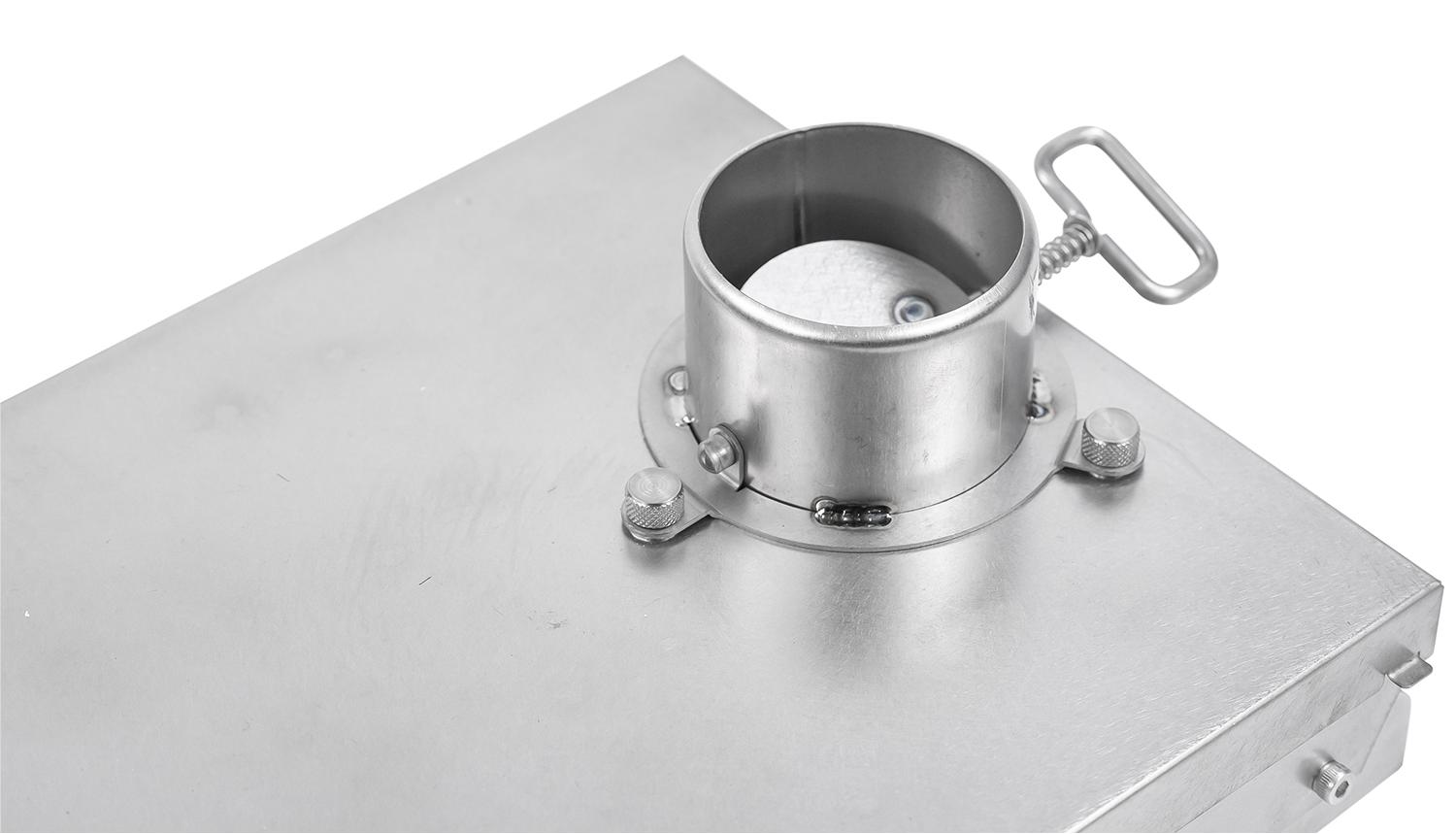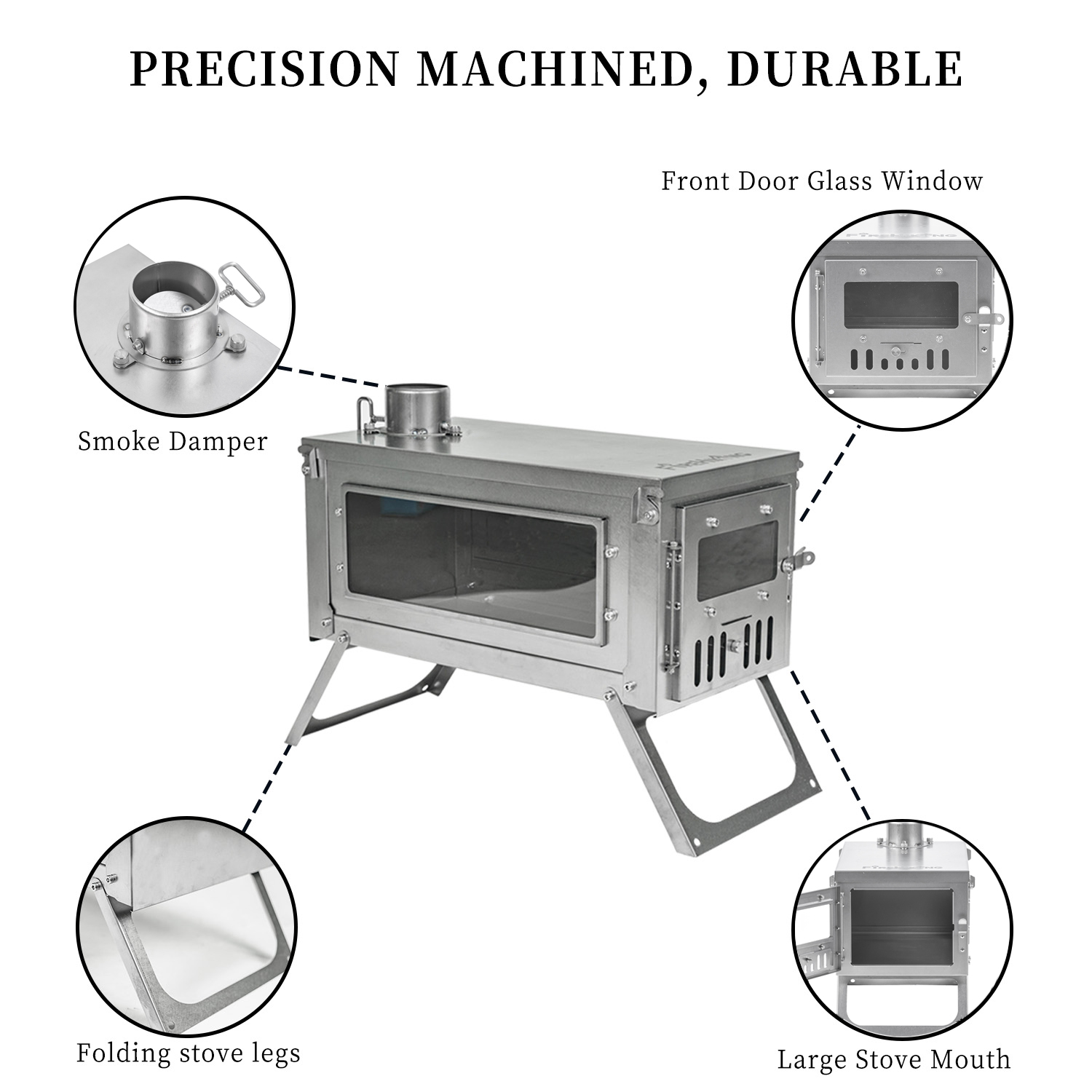Stove Dampers for Tent Stoves | How It Works and What It Does
Introduction:
When it comes to tent camping in colder weather, having a reliable wood stove can make a significant difference in your comfort level. One important component of a tent stove is the stove damper. In this review blog, we will explore the functionality and benefits of stove dampers for tent stoves. We will discuss how stove dampers work, their impact on combustion and heat output, and the importance of controlling airflow during camping. Let's dive in and discover the world of stove dampers!
1. Understanding Stove Dampers:
A stove damper is a device used to control the airflow within a tent stove. It is typically located in the stovepipe or chimney and can be adjusted to restrict or allow the flow of air. Stove dampers are designed to regulate the burn rate and temperature of the fire by controlling the amount of oxygen available. By adjusting the damper, campers can achieve efficient combustion, control heat output, and extend the burn time of their wood stove.
2. How Stove Dampers Work:
Stove dampers work based on the principle of restricting or allowing airflow. When the damper is fully open, it allows maximum airflow, resulting in a hotter and more intense fire. This is ideal for quickly heating up the tent or cooking meals. Conversely, when the damper is partially closed, it restricts the airflow, reducing the intensity of the fire. This allows for longer burn times and a more controlled release of heat. The ability to adjust the damper provides campers with flexibility in managing the stove's performance according to their specific needs.
3. Impact on Combustion:
Stove dampers play a crucial role in combustion control. By regulating the amount of oxygen available to the fire, they help achieve an optimal air-to-fuel ratio. Too much oxygen can lead to a fast-burning fire, wasting fuel and generating excessive heat. On the other hand, insufficient oxygen can result in incomplete combustion, leading to the production of smoke and harmful gases. With a properly adjusted damper, campers can achieve efficient combustion, maximizing heat output while minimizing fuel consumption and emissions.
4. Controlling Heat Output:
One of the significant benefits of stove dampers is their ability to control heat output. By adjusting the damper, campers can fine-tune the intensity of the fire, allowing for precise temperature regulation within the tent. This is especially important during varying weather conditions or when transitioning between activities that require different heat levels. Whether you need a roaring fire to warm up quickly or a gentle flame for a cozy ambiance, a stove damper gives you the power to adjust the heat output accordingly.
5. Importance of Airflow Control:
Controlling airflow is essential in a tent stove to ensure efficient heat distribution and prevent overheating. When the damper is fully open, the increased airflow helps distribute heat more evenly throughout the tent. This is particularly beneficial in larger tents or when multiple people are camping together. Conversely, partially closing the damper reduces the airflow, directing more heat towards a specific area of the tent. This level of control allows campers to create comfortable zones within the tent, catering to individual preferences and optimizing heat distribution.
Conclusion:
FAQ
- Is the Titanium Stove Really Suitable for Ultralight Hiking?Yes, FireHiking offers several stove options that are suitable for backpacking. One of the popular choices is the FireHiking Tent Stove, TOLA Mini Portable Camping Wood Burning Stove. This stove is specifically designed to be lightweight and compact, weighing only 3.4lb (1.5kg). Its portable size makes it easy to carry in a backpack, making it convenient for backpacking trips.
The TOLA Mini Portable Camping Wood Burning Stove is made from titanium, which is known for its lightweight yet durable properties. It features a foldable design, allowing it to be packed efficiently and taking up minimal space in your backpack. Despite its small size, the stove is designed to provide efficient heat output and reliable performance for cooking and heating purposes during your backpacking adventures.
It's important to note that while the FireHiking stove is suitable for backpacking, it's always recommended to consider the weight and size of the stove in relation to your overall backpacking gear and personal preferences. Additionally, ensure you follow proper safety measures and local regulations when using any camping stove in outdoor environments.
- Will the Stove Glass Explode Suddenly During Fire Burning?
FireHiking's titanium stoves all have a glass window, firstly because glass conducts heat well and allows the ambient temperature to rise quickly. On the other hand, it makes it easier for the camper to keep an eye on the combustion in the stove and to add more wood at any time.
However, the glass is extremely heat resistant and the heat generated by burning wood is far from enough to make the glass explode.
So there is absolutely no need to worry about the glass window exploding from normal use of the stove! - 🚚 How long does it take to ship a stove to the USA and Canada? Do you ship stoves to other countries?
🚚 It typically takes 4-8 business days to deliver a stove that is in stock across the USA and Canada.
🚚 We ship to many other countries, but since shipping alternatives vary across different countries, get in touch with us for details.
🚚 For weekend and holiday delivery arrangements, please ask our customer service!
- More FireHiking Hot Tent Camping Gear
- Company Infomation
- About us
- FireHiking Story
- Contact Us
- Notice
- Blog
- Company Policies
- Payment Policy
- Return&Refund Policy
- Shipping Policy
- Privacy Policy
- Intellectual Property Rights
- Become Affiliate
- Terms Of Use
- Terms of Use
- User Center
- Forget Password
- My Orders
- Tracking Order
- My Account
- Register


